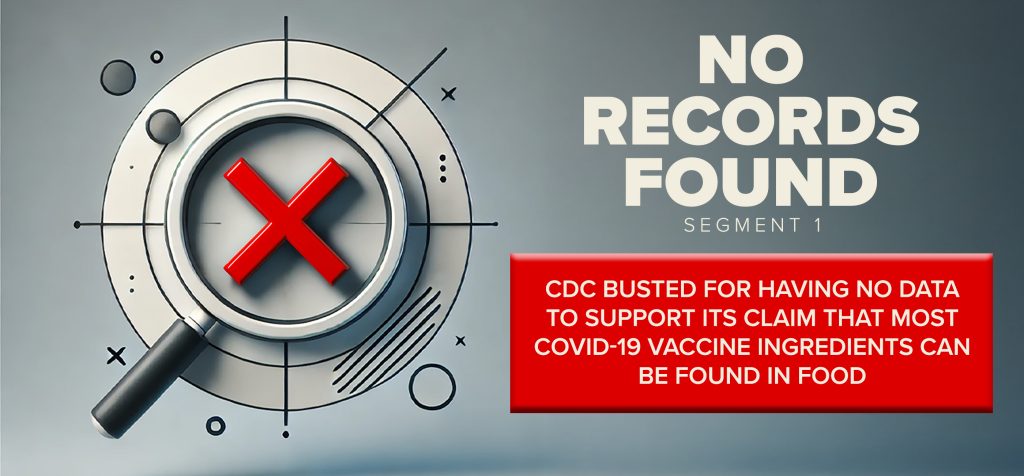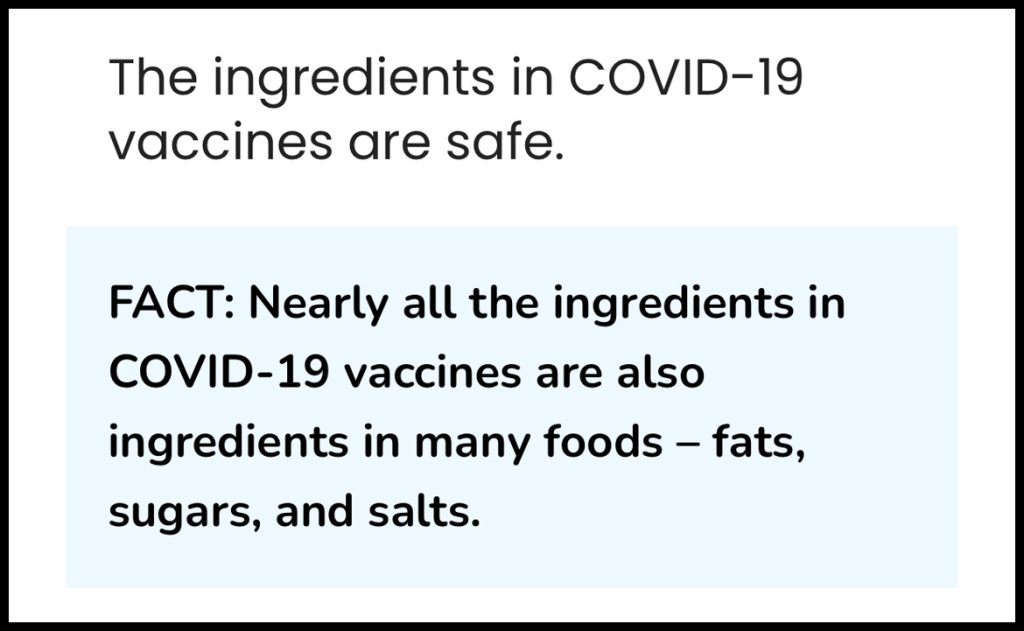

CDC calls itself the nation’s “leading science-based, data-driven, service organization.” So, one might assume that the statements on its website are carefully vetted by at least one of its 1,700 scientists. Unfortunately, CDC is unable to provide ICAN with any records relied upon to support its statements on its COVID-19 vaccine “Myths and Facts” webpage.
The CDC.gov website is supposed to be one of the most authoritative public health websites in the world. Perplexed by many of the statements made on its (ironically-titled) webpage “Bust Myths and Learn the Facts about COVID-19 Vaccines,” ICAN’s legal team submitted numerous FOIA requests asking CDC for the evidence it relied upon to make those statements. We’ll discuss each of these “facts” in our new series: No Records Found.
In this first segment, we’ll tackle perhaps the most surprising of all the statements on the page:

“Nearly all the ingredients in COVID-19 vaccines are also ingredients in many foods – fats, sugars, and salts.” This was certainly news to us, especially since ICAN has closely studied the ingredients listed in each COVID-19 vaccine insert. In order to get to the bottom of this, ICAN’s attorneys sent multiple FOIA requests, phrased in different ways, asking for all records showing:
- The foods that contain the same ingredients as those found in the COVID-19 vaccines.
- The foods that contain recombinant spike protein from the SARS-CoV-2 virus.
- The foods that contain nucleoside-modified messenger RNA.
- The foods that contain extracts from the soapbark tree.
- The foods that contain baculovirus and cellular DNA, lentil lectin, methyl-α-D-mannopyranoside, simethicone, pluronic F-68, Triton X-100 and/or Tergitol.
- Eating an ingredient found in food has the same effect on the body as injecting that same ingredient into the body.
A rational person would assume that these requests would be answered with records, studies, or at least emails between CDC scientists that support CDC’s claimed “fact.” In fact, CDC is required to have this support pursuant to the Information Quality Act, which requires that the agency be able to “substantiate the quality of the information it has disseminated.”
It will come as no shock to ICAN supporters to learn that CDC was not able to find ANY records whatsoever in response to any of our requests about this claim. Not a single study, white paper, or even an email from the “leading” public health agency on the planet to support a statement it calls “fact” on a page about “busting myths.” Truly incredible, ironic, and disturbing.
Stay tuned for Segment 2 to learn about other CDC claims that are completely unsupported by any evidence. Until then, ICAN will continue to work to ensure that this agency starts serving the public with real, verifiable science—not myths.
To support future legal actions like this, click here to donate!
